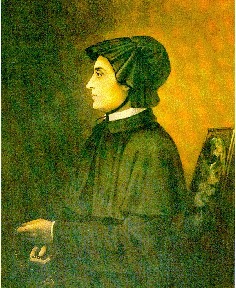Catholic Philosophy of Television – The Views of Father Chad Ripperger FSSP., PhD
1. The Downside
Father R. is an informal teacher of mine and I am carefully studying his book, Introduction to the Science of Mental Health, Sensus Traditionis Press, Denton Nebraska 2007.
 |
| St Elizabeth Seton - image Wikipedia |
First, his Thomistic analysis tells us that all tools (technology) are useful goods. There are other kinds of “good”, the honest good, the pleasurable good, and the ultimate good (Summum bonum). Father R. says when “technology stands between the knower and Reality ... the knower is distanced from reality and loses the opportunity to gain the necessary experience in order to live life according to reason”. An “honest good” becomes an end in itself because the tool then becomes an ultimate good – an idol, or false god, a graven image. Not only that, the idol status becomes addictive because the tool makes life easy, and because technology insulates us from physical toil (suffering); we do not utilise common sense that comes from learning how reality functions. We have become dependent “on technology and science always to solve the problems”. This presumption of excessive use has direct causal effect on mental health, or the virtue of right thinking and good judgment. The idolization “tends to strip one of common sense... the person loses the capacity to grasp the nature of things and how they are to be treated,” [all preceding quotes from page 36].
Of course, mothers of the first generation of TV users saw this immediately – that is why they called the television an “idiot box”.
1. The Upside
On the other hand, says Father R., it must not be forgotten that the television (as all tools) is a useful good, especially in terms of psychological treatment of disordered thinking and behaviours. In other words, it is a powerful training tool because it utilizes powerful sight and sound images that affect the human imagination. For example, “if someone has mental illness with respect to some specific object watching television can often correct the phantasm or image in the memory...” Here is an exception to this therapeutic hypothesis that proves the point that television can “greatly affect the appetites and emotions of man.” [Quotes in this section from pg,. 259].
My grandmother, Elvira, had her first cataract operation without any side effects. My father reports that on the second operation, she got stuck in the waiting room where the doctor had an explanatory video playing that showed the graphic gruesomeness of the eyeball getting exposed and pulling back the eyelid, etc. Grandmother’s already wild imagination went haywire and she physically tensed up from too much knowledge and she came out of the operation bruised up around the eye.
2. Conclusion
The most sinister effect of television is the intellectual and volitional passiveness that it induces. Watching television entails the “certain surrendering of the imagination to the images provided by the programmer ... this can be extremely dangerous in that one can just allow the television to do the thinking for him.” One must rather exercise dispassionate judgement on the images to keep them in proper perspective. Father R. Justifies the social good of CUT’s pamphleteering!
By the Prayer Crusader under the patronage of St Elizabeth Seton, Carson City, USA
Today the 4th January is the feast of St Elizabeth Ann Seton. In the early 1800s she reputedly had a vision in which she saw a little black box in every American’s home from which Satan would entre people’s homes in the 20th century.
No comments:
Post a Comment